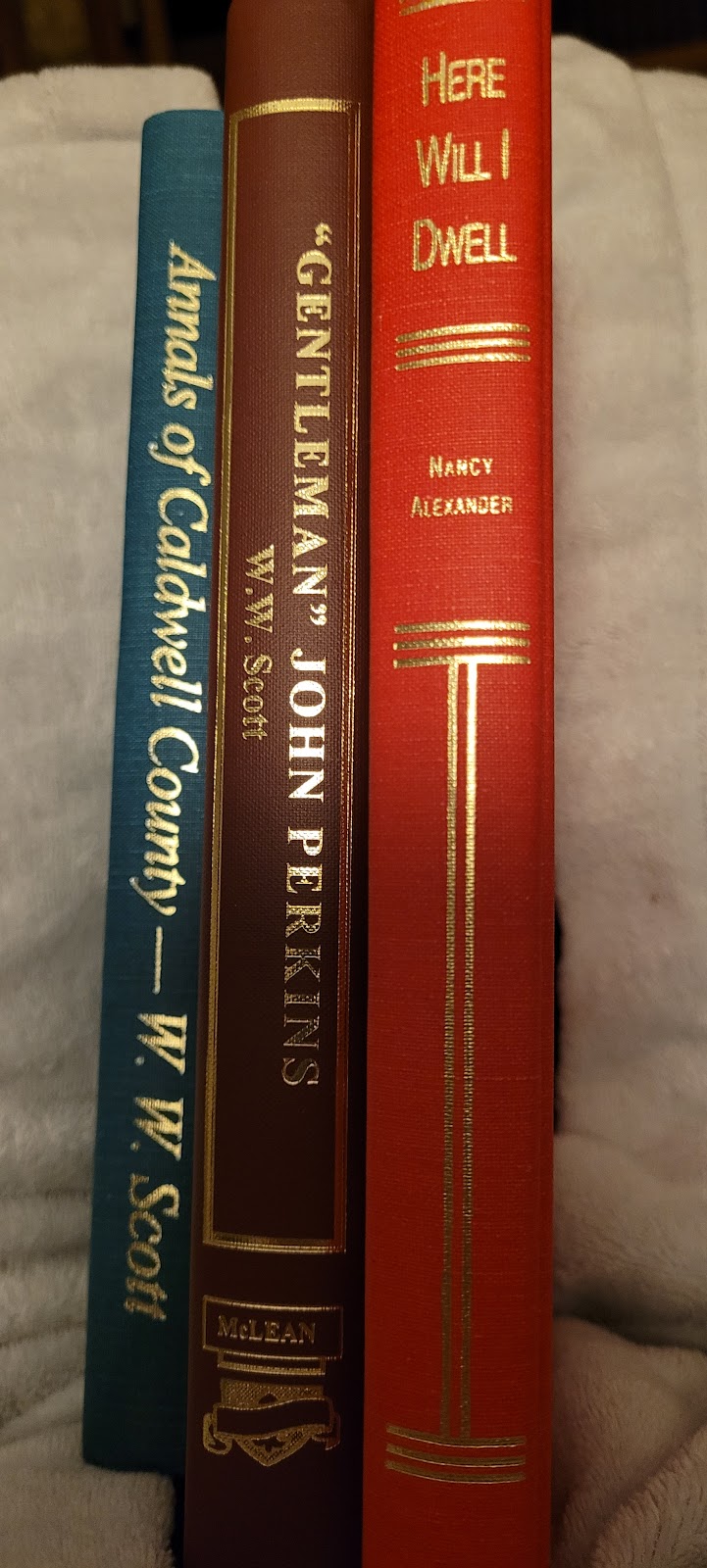In the spirit of Look-What-I-Found-While-I-Was-Looking-Something-Else-Up, I unearthed a sad story that seems to epitomize the tragedy of young lives lost in battle. I had been searching for information about a family in Caldwell County, North Carolina during the Revolutionary War when I found it in one of my go-to books for local history. These were written by great historians of our county, WW Scott and Nancy Alexander. They caught stories, just like I do, and they published them for future generations to learn about the past, just like I do.
In his Annals of Caldwell County, author Scott didn't format it to be in chronological order, but instead chose to arrange it as if he would have collected his wits for the day and plopped down a new story he caught. Just like I do in this blog.
So he has an article about the Confederacy early in the book, followed by visiting his neighbors in the 1930's (which is when the book was first published), followed by the colonial times, and then a few Revolutionary War stories inserted at will. Reading for what I wanted involved page by page reading (or is that an excuse since there is an index...which didn't even have the family name I was researching).
I became enthralled by these stories, but the saddest of all, probably the saddest of nonfictions I've read recently, was on page 42, the story of Captain John Thomas Jones, born in 1841. He was at the university in Chapel Hill when he left to join the Twenty-Sixth Regiment, Company I, of the Confederacy. A born leader, he soon became a second lieutenant, then captain, then major, and finally lieutenant-colonel. He fought in several battles, most famously at Gettysburg.
Later, at the Battle of the Wilderness, May 6, 1864, he stepped up when his colonel was wounded and led his regiment "in a charge against overwhelming numbers." Do the math. He was twenty-three years old. And mortally wounded in this "charge against overwhelming numbers."
The surgeon who attended to him told him there was no hope and he would die from his wound. He later reported the death scene, "With a most yearning expression he replied, 'It must not be. I was born to accomplish more good that I have done.'"
My heart melted. He didn't live long enough to accomplish his goals. His life was snuffed out, taken from him like a candle in the wind.
And that is what war does.
Catch of the day,
Gretchen

